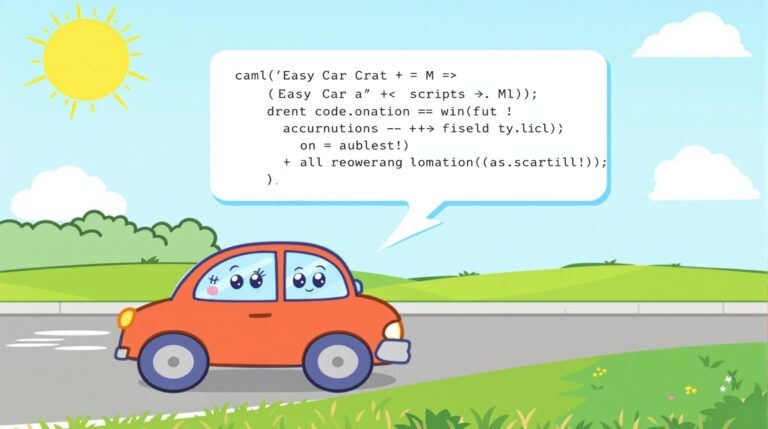Tired of car troubles? Wish you had a simple guide to keep your vehicle running smoothly? You’re in luck! Consider this your ‘easy car script’ – a collection of straightforward tips and tricks to maintain your car and avoid costly repairs. No mechanic degree required!
Understanding Your Car’s Basic Needs
-
Oil Changes: The Lifeblood: Think of oil as the lifeblood of your engine. Regular oil changes (typically every 3,000-5,000 miles) keep everything lubricated and prevent damage. Check your owner’s manual for the recommended interval.
-
Tire Pressure: Stay Inflated! Correct tire pressure improves gas mileage, extends tire life, and enhances handling. Find the recommended pressure on a sticker inside your driver’s side door or in your owner’s manual. A simple tire pressure gauge is inexpensive and essential.
-
Fluid Levels: A Quick Check: Regularly check your coolant, brake fluid, power steering fluid, and windshield washer fluid levels. Low levels can indicate leaks or other problems. Top them off as needed.
-
Battery Care: Avoid Getting Stranded: Keep your battery terminals clean to ensure a good connection. If your battery is more than three years old, have it tested to see if it needs replacement.
Simple Preventative Measures
-
Listen to Your Car: Pay attention to any unusual noises, vibrations, or smells. These could be early warning signs of a problem.
-
Regular Washing: Washing your car removes dirt, salt, and other corrosive substances that can damage the paint and undercarriage. Consider a wax to protect the paint further.
-
Check Belts and Hoses: Inspect belts and hoses for cracks, fraying, or leaks. Replace them before they fail completely.
-
Air Filter Replacement: A clean air filter improves engine performance and fuel economy. Replace it according to the manufacturer’s recommendation.
When to Call a Professional
While these tips can help you maintain your car, some repairs are best left to the professionals. If you notice any of the following, it’s time to visit a mechanic:
-
Brake problems: Squealing, grinding, or a soft brake pedal.
-
Engine problems: Unusual noises, poor performance, or warning lights.
-
Transmission problems: Slipping gears or difficulty shifting.
-
Steering problems: Difficulty steering or unusual noises.
By following this easy car script, you can keep your car running smoothly, save money on repairs, and enjoy the open road with confidence. Don’t wait – start implementing these tips today!





